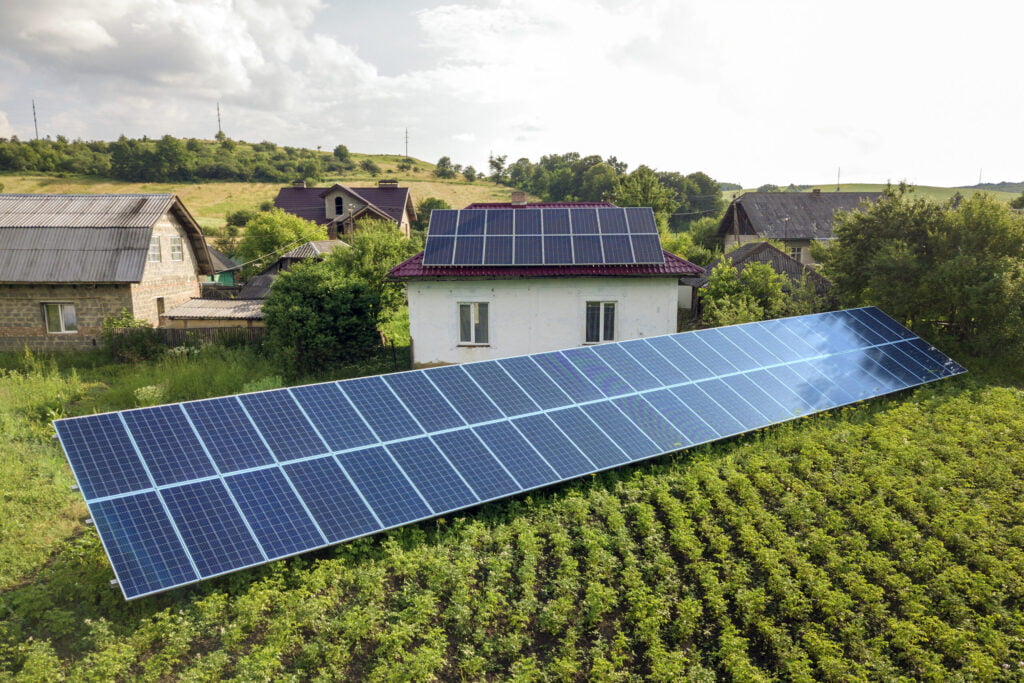In today’s rapidly evolving energy landscape, there’s a growing consensus about the significance of transitioning from traditional fossil fuels to renewable energy sources. Green energy companies, like the CleanChoice Energy provider, are at the forefront of this revolution, offering consumers viable alternatives that are not only better for the environment but also increasingly cost-effective. So why should you consider making the switch? Let’s delve into the reasons.
The Environmental Imperative
First and foremost, the environmental benefits of clean energy are undeniable. Fossil fuels, when burned, release large amounts of carbon dioxide and other greenhouse gases into the atmosphere. These gases are the primary culprits behind global warming and the subsequent climate change. Clean energy sources, such as wind, solar, and hydroelectric power, produce electricity without emitting greenhouse gases.
Apart from the direct impact on global temperatures, fossil fuel extraction and consumption have other detrimental environmental consequences. Oil spills, for example, can cause catastrophic damage to marine ecosystems. Coal mining can result in habitat destruction and water pollution. In contrast, renewable energy sources have a much smaller environmental footprint.
Economic Benefits
The economic advantages of clean energy are becoming more apparent as the sector matures. Historically, one of the main criticisms of renewable energy was its perceived high cost. However, in recent years, the prices for solar panels and wind turbines have plummeted, making them competitive with, if not cheaper than, conventional energy sources in many regions.
Furthermore, the renewable energy sector is a significant job creator. From research and development to manufacturing, installation, and maintenance, the clean energy industry offers a wide range of employment opportunities. As the world moves away from fossil fuels, investments in clean energy are expected to surge, leading to even more job opportunities in the sector.
Energy Independence

One often overlooked benefit of clean energy is the opportunity for energy independence. Countries that rely heavily on imported oil or gas can transition to locally-produced renewable energy, reducing their dependence on foreign energy supplies. This can result in enhanced national security, as countries are less vulnerable to supply disruptions or price fluctuations in the global energy market.
For individual homeowners, the transition can mean the ability to generate their own power, particularly with solar panels. This decentralization of power generation can lead to reduced transmission losses, lower electricity bills, and even the opportunity to sell excess power back to the grid in some regions.
Innovative Technological Advancements
Clean energy isn’t just about the standard wind turbines or solar panels anymore. The sector is teeming with innovation. Engineers and scientists are constantly working on enhancing the efficiency of existing technologies and devising new methods to harness energy from renewable sources.
Energy storage, for instance, is a booming field. Advancements in battery technology mean that surplus energy produced during sunny or windy days can be stored and then used when the sun isn’t shining or the wind isn’t blowing. Such developments are crucial in addressing one of the primary challenges associated with renewable energy—its intermittency.
Additionally, concepts like smart grids are revolutionizing the way we think about electricity distribution, making the entire system more efficient, resilient, and better suited to accommodate a high share of renewable energy.
Health and Well-being
Clean energy also translates to cleaner air and water, which directly benefits public health. Burning fossil fuels releases not only greenhouse gases but also pollutants like sulfur dioxide, nitrogen oxides, and particulate matter. These pollutants can exacerbate respiratory conditions, lead to heart diseases, and result in premature deaths.
By reducing our reliance on fossil fuels, we can mitigate these health impacts. Furthermore, the transition to clean energy can also reduce the likelihood of severe natural disasters exacerbated by climate change, such as hurricanes, floods, and droughts. Such events have profound implications for public health and safety.
Future-Proofing Our Energy Systems
One of the less discussed, but profoundly relevant reasons for switching to clean energy is the future-proofing of our energy systems. With finite reserves of fossil fuels, it’s not a question of if they will run out, but when. Relying on such non-renewable resources is essentially building our economies and civilizations on a ticking time bomb. Clean energy, particularly solar and wind, harness the power of natural processes that aren’t going to expire anytime soon. Transitioning to these inexhaustible resources ensures a more stable and secure energy future.
Resilience Against Market Volatility
Another benefit of clean energy is the insulation it provides against volatile fossil fuel markets. Prices of coal, oil, and natural gas are subject to wild fluctuations due to geopolitical tensions, supply chain disruptions, and changes in global demand. This volatility can translate into unpredictable utility bills for consumers and can jeopardize energy security for entire nations. Renewables, with their predictable costs after initial installation and their local production capabilities, offer a hedge against such volatility.
The Rising Tide of Social Responsibility
As global citizens become more informed and connected, there’s an increasing emphasis on corporate social responsibility (CSR). Companies are not just expected to make profits, but also to operate ethically and with consideration for the environment. Adopting and promoting clean energy use is one-way businesses can showcase their commitment to the greater good. Not only does this enhance their brand image, but it also attracts a loyal consumer base that values responsible business practices.
Infrastructure Development Opportunities
Clean energy isn’t just about harnessing power; it’s also about building the infrastructure that supports this new era of energy generation and distribution. This offers a plethora of opportunities, especially for developing nations. Instead of investing in traditional energy infrastructure, these nations can leapfrog directly to clean energy solutions. This could mean building state-of-the-art wind farms, expansive solar parks, or innovative tidal energy harnessing systems. Such undertakings can catalyze local economies, create jobs, and set these countries on a sustainable development trajectory.
Supporting Biodiversity and Ecosystems

The environmental benefits of clean energy don’t stop at reduced carbon emissions. By minimizing habitat destruction, water usage, and pollution associated with fossil fuel extraction and burning, renewables play a pivotal role in supporting global biodiversity. Ecosystems, from forests to wetlands, can thrive when they are not under the constant threat of oil spills, coal mine expansions, or gas leakages. Healthy ecosystems, in turn, provide invaluable services to humanity, from clean water and air to pollination of crops and carbon storage.
Rising Investment and Funding Opportunities
The global emphasis on sustainability has led to a surge in investment opportunities in the clean energy sector. Financial institutions, private equity, and even individual investors are keen on channeling their funds into projects that align with the global vision for a greener future. This influx of investment is accelerating research, driving innovation, and facilitating the large-scale adoption of renewables. For entrepreneurs and businesses, this means a vibrant ecosystem of financial support and collaboration.
It’s What Consumers Want
Last but not least, there’s a clear shift in consumer sentiment. As awareness about climate change grows, more and more consumers are demanding greener products and services. Many are willing to pay a premium for products made using renewable energy or for direct access to clean electricity. This consumer drive is pushing companies and governments to invest more in clean energy and implement policies that support its widespread adoption.
A Brighter Tomorrow
In conclusion, the case for switching to clean energy is compelling and multifaceted. Whether it’s for the sake of the environment, economic benefits, national security, or personal well-being, the arguments in favor of renewable energy are robust and wide-ranging. As we stand on the cusp of a cleaner, more sustainable future, each choice we make in favor of green energy propels us further towards a brighter, healthier, and more resilient tomorrow.



